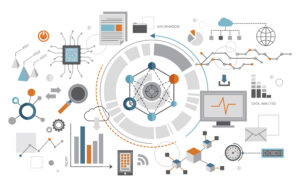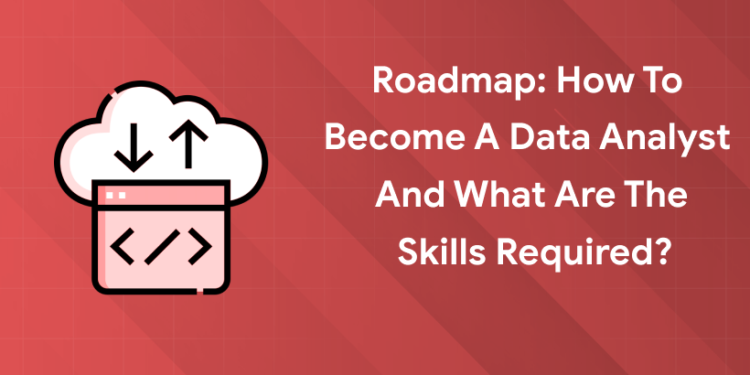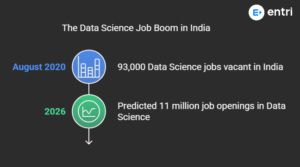Table of Contents
Graduates from all across the country are eyeing for the role of data analysts. Many factors come into play for the sudden interest in the profession. However, the roadmap to become a data analyst is not known to most and that is why this blog is there to help you!
Check out this video by Entri in Malayalam!
Introduction
Data scientists handle data collection, analysis, and visualization — and occasionally develop things like machine learning models — while data engineers design and maintain architectural systems for gathering, storing, analyzing, and managing large amounts of raw data. Data analysts are responsible for gathering, cleaning, analyzing, and reporting data. Data analysts collect information from throughout a company, evaluate it, and then convert the findings into plain English for team members from diverse backgrounds.
After earning a bachelor’s degree or acquiring the same amount of professional experience, data analysts—who are often in the early stages of their careers—may be looking for their first employment. Statistics, math, computer science, physics, finance, business administration, economics, or a related discipline are among the degrees that are frequently earned.
Looking for Data Science Career? Explore Here!
Building data models to organize crucial data for various teams within the organization as well as processing and monitoring data may fall under the purview of data analysts. Data analysts must continuously be on the lookout for information that needs to be updated and cleaned up since there are countless opportunities for errors when dealing with big amounts of data.
In addition to gathering, evaluating, and purifying data, data analysts provide business reports for groups and individuals within the company. To support all teams in making well-informed decisions supported by empirical data, they also assist in translating analytics into non-technical insights.
Data Analyst Job Types
1: Which of the following algorithms is most suitable for classification tasks?
Data analysts can pursue a wide range of occupations and positions. Data analysts frequently work in the healthcare, big data, market research, operations, and intelligence sectors. Let’s look at some of the key positions and roles in data analysis.
-
Operations Analyst
The main responsibility of an operations analyst is to streamline internal business procedures. This position focuses on everyday operations, internal reporting, and the production and delivery of goods. Operations analysts may work for almost any industry, including government organizations, grocery chains, and delivery services.
-
Marketing Analyst
By using Google Analytics, customized reporting tools, or other traffic analytics websites to ascertain the effect advertising is having, marketing analysts assist their team in tracking the performance of campaigns. Marketing departments need marketing analysts because they may use their knowledge to determine which campaigns are effective and which advertising to spend money on.
-
Healthcare Analyst
Data analysts of healthcare gather, compile, and evaluate information from electronic health records, billing claims, cost reports, and surveys, among other sources. This position’s goal is to support healthcare practitioners as they work to raise the standard of care, reduce expenses, and enhance patient satisfaction. In this line of work, tasks can include automating internal and external reporting, making data dashboards, or putting together presentations for hospital administrators.

-
Business Intelligence Analyst
A business intelligence analyst’s main responsibility is to draw insightful conclusions from corporate data. Someone in this position should be at ease using SQL, interpreting data, and building data models.
-
Transportation Logistics Analyst
Those who specialize in transportation logistics might benefit from a background in data analytics in several ways. Finding effective distribution routes for goods and services is a key component of this job. Large datasets are used by someone in this position to remove transportation bottlenecks.
🚀 Start Coding Today! Enroll Now with Easy EMI Options. 💳✨
Equip yourself with in-demand skills to land top-tier roles in the data-driven world.
Start Learning Now with EMI OptionsSkills Required for Data Analyst
On a yearly basis, the number of people aspiring to be a data analyst has increased prominently. India’s data industry is set to form 32% of the worldwide market and reach an astonishing 20 billion dollars by 2026 as compared to the present 6.9 billion dollars. The chances for becoming a data analyst has increased drastically in the context of this statistic. When a job role gets a lot of prominence, the skillset required also would be prominent. Here is a list of the skills required to become a data analyst.
-
Programming
R and Python are the two languages most frequently employed in data analyst positions. Languages used for statistical analysis and scripting may be classified into two categories based on whether compilation is necessary before execution.
-
Machine Learning
Any massive data analysis starts with automation. Machine learning (ML) has made it possible for computers to learn and complete tasks without explicit programming. Data analysts must be able to create, employ, and train the most pertinent models and algorithms on datasets to address specific problems.
-
Data Management
Data management refers to the methods used to collect, organize, and maintain data in a way that is efficient, secure, and affordable. Data analysts frequently handle data in some way, even though some businesses will have jobs such as data architects and engineers, database administrators, and information security analysts.
-
Statistics
Statistics is the branch of math and science that deals with the collection, examination, interpretation, and presentation of data. That may seem familiar since it roughly resembles what a data analyst performs. A solid understanding of probability and statistics can help you identify patterns and trends in the data, avoid biases and logical fallacies in your research and provide reliable findings.
-
Visualization
Another crucial element is utilizing those insights to create a narrative that can aid in making wiser business decisions. Data visualization can help with it. As a data analyst, you may understandably communicate your results by using charts, graphs, maps, and other visual representations of data. Learning visualization software is frequently necessary to advance your data visualization skills.
Join Our Data Science and Machine Learning Course! Enroll Here!
How to Become a Data Analyst
Students don’t take much time to decide which educational path they want to take or what profession they want to pursue in today’s rapidly changing world. However, it would necessitate some level of preparation beginning in the classroom. Students might learn what has to be done to become a data analyst by following the steps listed below.
- Complete your education by earning a Bachelor’s degree in a field that requires a foundational knowledge of statistics and analytical abilities, such as computer science or mathematics. This will aid in getting a fundamental understanding of the subject as well as aid in building a firm foundation upon it.
- Develop your data analytical talents: To succeed in your career, you may develop a variety of data analytical abilities, including those related to data visualization, SQL databases, data mining and cleaning, programming languages, and more.
- To become a data analyst, you may seek a variety of credentials, including the Certified Analytics Professional, Google Data Analytics Certificate, Microsoft Certified: Data Analyst Associate, and more.
- Become an intern: Getting an internship not only helps a candidate get ready for the job but also offers them first-hand knowledge of the field. Candidates will learn how things operate in a real situation through an internship.
- Pursue a Masters’s Degree: After accumulating a significant amount of experience, individuals may decide to go back to school and earn a Masters’s degree in a related field, which will help them advance in the workplace and see an enormous increase in their compensation.
Challenges Faced by Data Analysts
As with any professional job role, data analysts also face some challenges. Here are some of them:
-
Data Quality and Cleaning: One of the biggest challenges for Data Analysts is dealing with messy data. The data you get from different sources may be incomplete, incorrect, or in an unorganized format. Cleaning and preparing this data before analysis can take a lot of time and effort.
-
Dealing with Large Datasets: Sometimes, you have to work with huge datasets that are too large to handle easily. These can slow down your computer or require special software to manage. It takes patience and the right tools to handle such big amounts of information.
-
Balancing Multiple Projects: Data Analysts often have to work on several projects at the same time. This can be stressful, especially if there are tight deadlines. Keeping track of multiple tasks and making sure everything gets done on time can be tricky.
-
Interpreting Data Accurately: Understanding data is not always straightforward. A mistake in how you analyze the data or interpret the results can lead to wrong conclusions, which can affect important business decisions. It’s crucial to pay attention to detail and ensure your analysis is correct.
-
Communication of Findings: After all the data is analyzed, the next big challenge is explaining your findings to people who don’t have a technical background. You need to present your analysis clearly and in a way that’s easy to understand, which isn’t always easy.
🚀 Start Coding Today! Enroll Now with Easy EMI Options. 💳✨
Equip yourself with in-demand skills to land top-tier roles in the data-driven world.
Start Learning Now with EMI OptionsSalary Expectations in India
The salary expectation for a data analyst can vary depending on experience, location, and skills. Here’s an idea as to what you can expect:
- Entry Level (0-2 years of experience): As a fresher or as someone who has just stepped into the data analysis journey, you can expect a salary range between ₹3 – ₹6 LPA. With internship and some practical experience, you earn more than the specified range.
- Mid-level (2-5 years of experience): With a few years of experience, you can earn from ₹6- ₹12 LPA, as with these many years of experience, you would be having more responsibilities and projects coming your way.
- Senior level (5+ years of experience): For experienced data analysts, the salary range can be between ₹12 – ₹20 LPA or even more, depending on expertise and the company.
- Freelancers: Data analysts who work as freelancers can earn up to ₹500 – ₹2000 per hour, depending on expertise.
Wrapping up
There are several reasons to think about a career in data analytics, including pay. Remember to update your resume as you add new abilities to your toolkit as a data analyst. Because it is so difficult to locate these highly qualified people, computer scientists are likely to have outstanding career prospects. The skills scarcity is still a major issue for many businesses, and as they scramble to catch up to the rest of the market, expect to see even more teams join this year.
If you feel like you want to learn more or brush up a bit about data analytics, check out Entri’s data analytics course. With expert instruction and top quality materials which will help you master data analytics in no time. You can also check out other courses offered by Entri, including data science, python programming, and full stack development. Enrol now, and start your journey towards success.
Related Articles
🚀 Start Coding Today! Enroll Now with Easy EMI Options. 💳✨
Equip yourself with in-demand skills to land top-tier roles in the data-driven world.
Start Learning Now with EMI OptionsFrequently Asked Questions
Is coding expertise required for a data analyst?
There are several industries where data analysts are employed. While certain industries might necessitate that a data analyst is skilled in programming languages for data analytics, others would only use analytical tools or Excel to complete the task. Therefore, the need for coding expertise entirely relies on the industry or company.
Is working as a data analyst a wise choice?
The need for data analysts has grown significantly in recent years. The greatest candidates for the job of data analyst would be those that are strong communicators, have programming language expertise, and have analytical thinking abilities.
How should a data analyst develop their career?
One must initially complete a 4-year bachelor’s degree program with a focus on either Computer Science, Mathematics, Statistics, or Economics to pursue a career as a data analyst. After that, applicants might start working for a company as data analysts.
Where can I locate openings for internships?
There are several private businesses where you may hunt for data analyst internship opportunities. Doing internships with reputable private corporations or enterprises is usually preferable.















